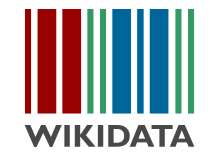Sharing data and data repositories
Why share your data?
Data sharing achieves many important goals for the research community, such as:
-
Reinforcing open scientific inquiry;
- Encouraging diversity of analysis and opinion;
- Promoting new research, testing of new or alternative hypotheses and methods of analysis;
- Supporting studies on data collection methods and measurement;
- Facilitating education of new researchers;
- Enabling the exploration of topics not envisioned by the initial investigators;
- Permitting the creation of new datasets by combining data from multiple sources.
How do you go about sharing data?
Some of the options to consider:
Open access
Storing your data securely in a repository or data store and providing open access via a link. This option is suitable for the broadest possible access to your data, when there are no legal, ethical or commercial barriers to your doing so.
Mediated access
This would involve having other researchers contact you (or someone else that you authorise) directly to arrange access to the data. This option is suitable if you are concerned about the way that your data might be used or if you would like to provide further context for interpretation of the data. It can also be used in cases where re-use is allowed but requires approval from a project steering group or human ethics committee.
Restricted access
Storing your data securely in a repository or data store and providing controlled access e.g. through use of a password. You might want to consider this option if you can only make your data available to a certain set of people (e.g. those that worked on the project) or there are privacy considerations. Keep in mind that sensitive and confidential data can often be shared ethically if informed consent for data sharing has been given and identities have been anonymised.
Contact researchdata@bond.edu.au if you have data to share or have any queries on data management.
Journals with associated datasets
PLoS released a data policy on March 1, 2014, in which authors are required to include a data availability statement in all research articles published by PLOS journals.
- PLOS One ‘accessible datasets’ search may assist your research.
- See the PLoS site for more details on data and data repositories.
The following journals also publish articles with associated datasets:
- Scientific Data
- GigaScience (Thematic Series)
- BMC Research Notes
Information about licensing data is available in this guide.
Data collections in Bond University's Research Portal (Pure)
Research Data Australia
Depositing your data in an archive or repository will facilitate its discovery and preservation.
Bond University has data collections described on Research Data Australia.
Contact the Manager, Scholarly Publications to make your data more discoverable, accessible in this national database.
List of data repositories
There are a number of discipline-specific data repositories as well as institutional repositories and archives where you can deposit data. Some of these are:
-
Aboriginal and Torres Strait Islander Data ArchiveATSIDA is a specialised, trusted research data management facility for Australian Indigenous research data managed by the University of Techonology Sydney Library. It is a thematic archive within the Australian Data Archive. Datasets are stored securely with the Australian National University's National Computational Infrastructure.
-
AusStage
 AusStage provides an accessible online resource for researching live performance in Australia. Development is led by a consortium of universities, government agencies, industry organisations and collecting institutions with funding from the Australian Research Council and other sources.
AusStage provides an accessible online resource for researching live performance in Australia. Development is led by a consortium of universities, government agencies, industry organisations and collecting institutions with funding from the Australian Research Council and other sources. -
Australian Data ArchiveADA is a national service for the collection and preservation of digital research data. It makes data available for secondary analysis by academic researchers and other users.
-
Australian Ocean Data Network (AODN)
 Formerly BlueNet, AODN provides access to all available Australian marine and climate science data. It is the primary access to IMOS data including access to the IMOS metadata.
Formerly BlueNet, AODN provides access to all available Australian marine and climate science data. It is the primary access to IMOS data including access to the IMOS metadata. -
DryadDryad provides a general-purpose home for a wide diversity of datatypes.
-
FigshareSupports upload of any file format to be previewed in the browser. Any research output, from posters and presentations to datasets and code, can be disseminated.
-
Pacific and Regional Archive for Digital Sources in Endangered CulturesPARADISEC is a digital archive of records of some of the many small cultures and languages of the world.
-
Pangaea
 Operated as an Open Access library for archiving, publishing and distributing georeferenced data from earth system research. The system guarantees long-term availability of its content through a commitment of the hosting institutions.
Operated as an Open Access library for archiving, publishing and distributing georeferenced data from earth system research. The system guarantees long-term availability of its content through a commitment of the hosting institutions. -
Wikidata
 Wikidata is central storage for the structured data of its Wikimedia sister projects including Wikipedia, Wikivoyage, Wikisource, and others.
Wikidata is central storage for the structured data of its Wikimedia sister projects including Wikipedia, Wikivoyage, Wikisource, and others.
It provides support to many other sites and services beyond Wikimedia projects. The content is available under a free license, exported using standard formats, and can be interlinked to other open data sets.
For more repositories see:
-
Registry of Research Data Repositories
 re3data.org is a global registry of research data repositories that covers research data repositories from different academic disciplines. It presents repositories for the permanent storage and access of data sets to researchers, funding bodies, publishers and scholarly institutions
re3data.org is a global registry of research data repositories that covers research data repositories from different academic disciplines. It presents repositories for the permanent storage and access of data sets to researchers, funding bodies, publishers and scholarly institutions
Research Data Australia and ORCID
Watch this short video on how to import your datasets from Research Data Australia into your ORCiD profile.
Open access
Open Access (OA) is free, immediate and permanent online access to the scholarly publication.
OA integrate the same features as traditional scholarly publishing. The main difference is that anyone can read, download, copy, print or link to the publication - free of charge.
There are two primary approaches to Open Access publishing, known as ‘Gold' and 'Green' model. There is also a Hybrid model in which not all content is openly accessible. Policies vary.
Green Self Archiving
Articles are published in subscription-based journals. Authors may self-archive a version of their article for free public use, either in their own or their institutional repository (e.g. Bond University Research Portal) or an open access website.
Gold Open Access
The publisher makes content openly available to all, immediately upon publication without the need for any subscription or purchase. This model usually requires an Article Processing Charge paid by the author or their institution.
Authors are encouraged to check Open Policy Finder (formerly Sherpa Services) for publisher policies. Information about the journals is also available from the Ulrich's periodical directory. Enter the title of the journal you are interested in then limit to 'open access' journals.
Watch “Open access explained!” - by PhD Comics (2012) video to gain a better understanding of open access publishing.
- Home
- Managing data
- Policy and ethics
- Sharing data and data repositories
- Storage and backup
- Ownership and rights
- News and resources